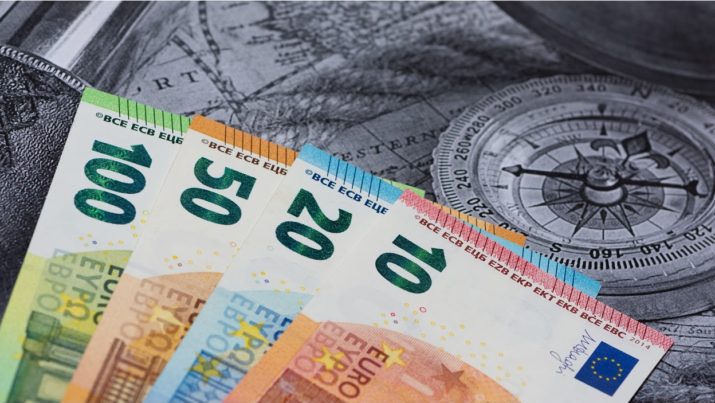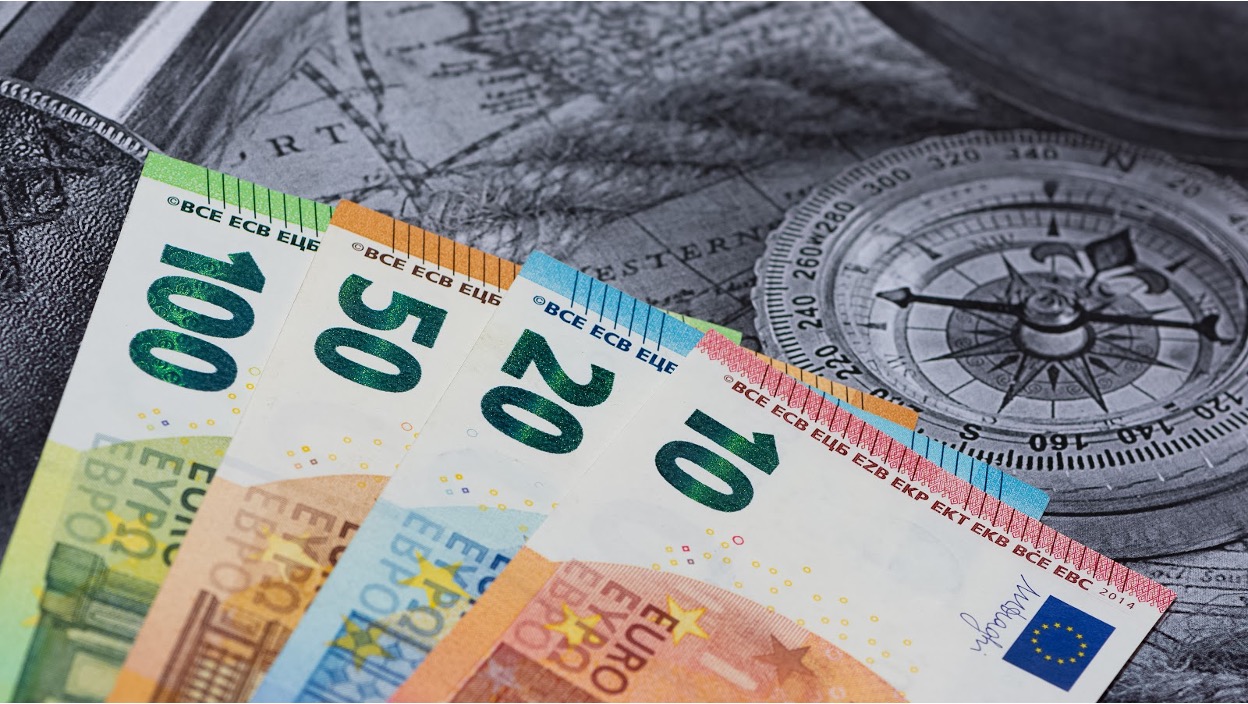
National Governance and FDI in Europe: Shifting Political and Economic Landscapes at Critical Junctures

This is part of our special feature, Business in Politics and Society.
In recent years, a global democratic backslide, as well as the actions of Russia in Ukraine, have shined a spotlight on national governance in Europe. With the World Governance Indicators (WGI) report, the World Bank has measured national governance in six dimensions. The relationship between governance and foreign direct investment (FDI) is important to consider as a benchmark in recent years, given the rerouting of trade and investment trends in the global economy since the global pandemic broke out in 2020. During the recent period of global democratic backslide, the EU has maintained the distinction of remaining committed to democratic governance. The Freedom in the World report’s democracy scale shows that the number of countries in decline has been greater than the number of countries moving toward democratization (Freedom House 2022, 2).
The COVID-19 pandemic has presented new concerns in the political realm of governance, as well as economic concerns exacerbated by supply chain issues. This essay uses institutional theory to frame national governance, FDI, and economic growth. The institutionalist scholars premise that robust national institutions with good governance support economic growth (North 2005; Rodrik 2018, 2007, 2000). The intersection of business and policy is shaped by institutions and the quality of governance at national and local levels. The global pandemic of 2020 and the global financial crisis of 2009 are critical junctures that affected countries in Europe, which, for the most part, received reduced FDI during those years. These changes ensued in a European context of support for democracy, as a fundamental value of the EU, with a focus on the newest member states that have joined since 2004.
The exemplary nature of the EU’s effective government practices and regulatory quality is known as “the Brussels effect” (Bradford 2020). Beyond the Single Market established in 1992 that has supported deep integration in the four freedoms of goods, services, labor, and capital, and the Euro currency established in 1998, the Brussels effect touches on nearly every policy dimension. These are some areas where the EU has led the way with regulatory policies that are strong enough to support access to markets though not so inflexible that they restrict markets. The EU has been a pioneer in global data privacy with the General Data Protection Regulation (GDPR) which has been in effect since 2018, competition policy, and public health standards. Beyond the 27 member states, this norm-leading approach to policy provides model standards for the world as a global regulatory power (Bradford 2020,17).
About national governance and the World Governance Indicators (WGI)
This essay identifies trends globally and trends in Europe, with a focus on the EU, for national governance, in the context of shifting political and economic landscapes. A broad study of 114 countries found that, “Democratic governments, even when controlling for other political and economic factors, attract as much as 70 percent more FDI as a percentage of GDP than their authoritarian counterparts” (Jensen 2003, 588). Another study, of countries in Latin America, found that there is a positive relationship between FDI and Current Account balance (Montero 2008).
This proposed research analyzes the relationships between national governance indicators and FDI inflows. Prior research has suggested that the WGI indicators, with economic dimensions, may tend toward a meaningful relationship with FDI (Barrett 2011). Future research, described as follows, aims to further reveal the relationship between national governance and FDI with a focus on the economic and investment dimensions of Government Effectiveness and Regulatory Quality. There is a focus on the role of governance mechanisms to understand FDI inflows in the EU member states. Governance as institutional quality is defined by the World Bank, WGI as follows (World Bank 2022a):
Governance consists of the traditions and institutions by which authority in a country is exercised. This includes the process by which governments are selected, monitored and replaced; the capacity of the government to effectively formulate and implement sound policies; and the respect of citizens and the state for the institutions that govern economic and social interactions among them. This institutional quality has been measured using six WGI indicators since 1996. These six indicators, considered as the independent variables in research, are categorized as follows in these dimensions (World Bank 2022):
Political group: The process by which governments are selected, monitored and replaced
A: #1. Voice and Accountability, #2. Political Stability/Absence of Violence
Economic/Investment: The capacity of the government to formulate and implement sound policies
B: #3. Government Effectiveness, #4. Regulatory Quality
Legal/Judicial: The respect of citizens and the state for the institutions that govern economic and social interactions among them
C: #5. Rule of Law, #6. Control of Corruption
Related research is designed to frame the WGI as independent variables and FDI as the dependent variable of the consecutive years. The analysis focuses on the period between 2002 (when annual frequency becomes available) and 2020 (the most recent data available). This period includes 2004, the year when ten countries joined the EU (the largest group to date). The forthcoming research focuses on the economic and investment dimensions (Government Effectiveness and Regulatory Quality) given their importance to the relationship to investment. The protection of property rights is an example of Government Effectiveness. A just and effective tax system, for fiscal revenue collection, is an example of Regulatory Quality. This is because these indicators reduce the most political risk to attract investment. In prior research, Democracy and Economic Growth (GDP) have been the control variables (Jensen 2003). Democracy is measured by the Freedom House Index with the definitive measure: A political system in which the people choose their authoritative leaders freely from among competing groups and individuals who were not designated by the government (Freedom House 2022).
These national governance indicators capture how countries interact with the formation of policies. They also demonstrate how people respond to the government and its policies. Research design will demonstrate how regions within Europe compare over time when grouped by geography Western, Northern, Central, and Eastern countries. It will also demonstrate how they compare over time when grouped by periods of enlargement: 1951: 6 countries, 1973-1995: 8 countries, and 2004-present: 13 countries. Examining the effect of governance mechanisms on FDI inflows, the focus is on the member states from the last wave of enlargement countries with new regimes of governance in recent decades.
The UNCTAD World Investment Report for 2021 showed that the impact of COVID-19 was a thirty-five percent contraction in global FDI, falling to $1 trillion. This was twenty percent less than the level of global FDI after the global financial crisis (UNCTAD 2021, x).
FDI flows decline after two global challenges: the global financial crisis and the pandemic
From a historical institutional perspective, in the last two decades the global financial crisis and the pandemic are the critical junctures that have shaped institutional change and policy innovations (Capoccia 2015; Martin and Swank 2012, 12). Among the tools of economic diplomacy, FDI in physical assets in the foreign host country is one tool alongside trade flows and financial portfolio flows. Trade agreements are found to support FDI inflows, notably in developing countries (Büthe and Milner 2008). Comparatively, the developed economies of the US and Europe remain primary sources of FDI for each region, even without the formality of a bilateral trade agreement (Hamilton and Quinlan 2021, v). During the initial years following these crises, trade and financial portfolio flows contracted as expected. The UN Conference on Trade and Development (UNCTAD) provides metrics for FDI stocks of existing assets and FDI flows of new assets in a given year.
During the year following the global pandemic of 2020, global FDI flows were reduced by a greater amount than the year following the global financial crisis (GFC) between 2007-2009 (UNCTAD 2021). As presented by the UNCTAD World Investment Report 2021, due to the global pandemic, “Global FDI flows dropped by 35 per cent to $1 trillion, from $1.5 trillion in 2019. This is almost 20 per cent below the 2009 trough after the global financial crisis” (UNCTAD 2021, x). A decade prior, the UNCTAD World Investment Report 2010 stated that for 2010 global inflows of FDI totaled $1.12 trillion, which is less than the high mark of $1.4 trillion possibly expected in 2009 when global inflows totaled $1.11 trillion (UNCTAD 2010, xiii). Another measure of global trends reported by the World Bank shows that, since the pandemic, FDI is down by a greater extent than it was after the GFC. In 2016, there was a peak in global FDI at $2.75 trillion, and in 2020 the figure was roughly half of that at $1.35 trillion (World Bank 2022b).
In recent years, the global trend has been for countries to move away from democratic consolidation. This has been observed as an increasing shift away from democracy since 2006 (Freedom House 2022). Complementarily, the Economist Intelligence Unit (EIU) reports more countries moving away from democracy. Less than half of 167 nations researched by the EIU are classified as democracies. The index fell in almost every region while it remains steady in Europe. The report compares the current trend to 2009, post-global financial crisis, which was the last most notable decline for democracies (EIU 2022, 4). The challenge of managing COVID-19 has led to a technocratic, authoritarian-leaning approach, notably in China (EIU 2022, 3).
However, the EU remains committed to democracy in principle and in practice as it affirms these freedom-centered values for the 27 member states. Beyond economic shocks of crises, the geopolitical shock of Russian aggression in Ukraine has led to economic responses from allied nations since the spring 2022. In turn, the United States, the European Union, Australia, and Japan have increased targeted sanctions on government officials and limited trade with a focus on restricting demand for energy assets from Russia. Given the proximity of the EU to Russia, these economic shocks and constraints will impact Europe more acutely than other regions, resulting in a higher price environment which will be felt throughout society. The broader question of how national governance affects FDI can be analyzed historically over the past decades.
Comparing national governance and FDI across the European Union
Over the past several decades, the changing nature of the EU has been characterized by a broadening of enlargement and a deepening of policy. At the same time, there have been transitions in democracy and FDI across countries. The quality of governance has been measured by presence of democratic practice like voice and accountability (which the WGI #1). This open political system can minimize risk to attract investment and to advance rule of law, as took place in the waves of democratization in the late 1990s and early 2000s in Europe (Bunce et al. 2009). From a political economy perspective, the emphasis on sustainability and Environment, Social, and Governance (ESG) investing has brought renewed attention to governance at national and institutional levels in the public sector and private sector. A political construction of business interests influences market-oriented circles to pursue society building that draws upon state building (Martin and Swank 2012, 12). These foundational civic activities of society building and state building rest upon foundations of national governance.
Trends in Europe show that certain countries are recipients of FDI as top investment destinations. The existing stocks of FDI over time are relatively greater than the annual flows to the EU. Among the top ten for global investors are the UK (number seven) and Germany (number eight) (UNCTAD 2021, 46). Even though the UK’s departure from the EU through the Brexit process was undertaken between 2016-2020, in 2019 the UK was the seventh largest investor economy by FDI stock with USD $220 billion. This ranking for the UK, in 2019, was between FDI stock Singapore at USD $351 billion, as the sixth ranked economy, and FDI stock Germany at USD $197 billion, the eighth ranked economy. The highest point for annual FDI in the EU was 2008, at approximately USD $820 billion (UNCTAD 2019). This was prior to the global financial crisis. Since then, the years 2017-2019 had FDI between USD $400 billion-$470 billion during the period of global uncertainty due to trade war (UNCTAD 2019).
Across the EU, there are national socioeconomic differences aligned with periods of enlargement. Given that the post-communist countries have experienced significant political changes during the twenty years since the end of the Cold War, this is a good sample with which to examine the effect of the relationship of governance on FDI, as it accompanies the development of democratic political systems. These countries’ geographic proximity make them good candidates for comparison. It allows for the control of historically similar independent variables, and the comparison of the dependent variable of FDI over time (Fioretos 2017). This supports the formulation of meaningful insights about the effects of governance mechanisms
Institutional theory framing governance, FDI, and economic growth
Understanding governance mechanisms in relation to FDI reveals the ability and relative efficiency of various institutions in adapting to internal and external pressures. Investors seek to minimize political risks and ensure that their investment is safe from expropriation and administrative maneuvers that disrespect the business contract. The protection of private property is essential to FDI and foreign investment, which requires establishing regulations, for which the EU countries benefit from the certainty and pragmatism of the Brussels effect (Bradford 2020). Related, future research on governance focuses on the economic and investment dimensions of Government Effectiveness and Regulatory Quality. The UNCTAD 2022 World Investment Report on International Tax Reform and Sustainable Investment addresses national tax policies as an important regulation for ensuring appropriate revenues for economic growth.
Describing the different approaches to ensuring property protection between China and Russia, Rodrik commented on the effectiveness of private investment in town and village enterprises in the 1990s. The semblance of property rights in China was important, while Russia had not been able to provide this protection partially due to lacking enforcement from judiciary institutions. “Private entrepreneurs felt secure not because the government was prevented from expropriating them, but because sharing in the profits, it had no desire to expropriate them” (2007, 189). In the EU, the respect for contracts and private property is a foundational element of good governance.
Providing a definition for institutional structures, the “new institutional” economist Douglass North describes them as “a combination of formal rules, informal constraints, and their enforcement characteristics,” (2005, 6). In Understanding the Process of Economic Change, he asserted that the example of the USSR was evidence of the dangers of an inflexible institutional arrangement that lacked “adaptive efficiency.” Consistent with the desire of humans to reduce uncertainty over their environment, investors seek an administration of governance that substantiates trust and minimizes uncertainty in their investments.
The impact of national governance on FDI is a historical question that reflects changing political and economic conditionals at the national and global level. The geopolitical uncertainty of the war in Ukraine brings tension to governments which are politically divided by alliances and economically dependent on the region to generate energy and food commodities (IMF 2022). Research on the relationship between the six governance indicators provided by the World Bank WGI as the independent variable and FDI as the dependent variable is a vast arena in which to analyze the 27 EU member states. Grouping countries by geographic region and by accession date into the EU, is an approach that has promise for determining patterns and relationships over time. The historical markers of the two prior financial crises during the GFC (2007-2009) and the global pandemic (2020-2022), as critical junctures, provide reference points for the shifting political and economic landscapes across the European Union and the world.
Beverly Barrett, PhD, is an international policy specialist, educator, and researcher. Her research focuses on institutional change and public policy, together with governance, international trade, regional integration, and education policy. She has taught International Economics and Management in undergraduate and graduate programs. Currently she is a Lecturer in the Bauer College of Business at the University of Houston. Dr. Barrett’s monograph book is titled Globalization and Change in Higher Education: The Political Economy of Policy Reform in Reform in Europe (Palgrave Macmillan). Her podcast can be accessed here: Global Bridges: Changing Flows of People and Trade about economic recovery since the pandemic.
References
Barrett, Beverly. 2011. “The Impact of Governance on FDI in Russia and Post-Communist Eurasia.” International Studies Association (ISA) panel – Understanding Foreign Direct Investment (FDI) Inflows: The Role of Governance Mechanisms. Montreal, Canada, March 2011.
Bradford, Anu. 2020. The Brussels Effect: How the EU Rules the World. Oxford University Press.
Bunce, Valerie; McFaul, Michael and Kathryn Stoner-Weiss (Eds.). 2009. Democracy and Authoritarianism in the PostCommunist World. Cambridge: Cambridge University Press.
Büthe, Tim and Helen Milner. 2008. “The Politics of Foreign Direct Investment into Developing Countries: Increasing FDI through International Trade Agreements?” The American Journal of Political Science 52:4, 741-762.
Capoccia, Giovanni. 2015. “Critical Junctures and Institutional Change.” In James Mahoney and Kathleen Thelen (Eds.). Advances in Comparative-Historical Analysis. New York: Cambridge University Press, 147-179.
Economist Intelligence Unit (EU). 2022. Democracy Index 2021: The China Challenge, 2022. https://www.eiu.com/n/campaigns/democracy-index-2021/
Fioretos, Orfeo (Ed.). 2017. International Politics and Institutions in Time. Oxford: Oxford University Press.
Freedom House. 2022. Freedom in the World: The Global Expansion of Authoritarian Rule. https://freedomhouse.org/issues/government-accountability-transparency
Hamilton, Daniel and Joseph Quinlan. 2021 Transatlantic Economy, (Foreign Policy Institute, Johns Hopkins University SAIS/Woodrow Wilson Center, 2021). https://transatlanticrelations.org/publications/transatlantic-economy-2021/
International Monetary Fund (IMF). 2022. World Economic Outlook 2022: War Sets Back the Global Recovery. https://www.imf.org/en/Publications/WEO/Issues/2022/04/19/world-economic-outlook-april-2022
Jensen, Nathan. 2003. “Democratic Governance and Multinational Corporations: Political Regimes and Inflows of Foreign Direct Investment,” International Organization, 57:3, 587-616.
Kaufmann, Daniel, Kraay, Aart, and Massimo Mastruzzi. 2010. “The Worldwide Governance Indicators: Methodology and Analytical Issues,” World Bank Policy Research Working Paper No. 5430.
Martin, Cathie Jo and Duane Swank. 2012. The Political Construction of Business Interests. Cambridge: Cambridge University Press.
Montero, Alfred. 2008. “Macroeconomic Deeds Not Reform Words: The Determinants of Foreign Direct Investment in Latin America,” Latin American Research Review, 43:1.
North, D. 2005. Understanding the Process of Economic Change, Princeton: Princeton University Press.
Rodrik, Dani. 2018. Straight Talk on Trade: Ideas for a Sane World Economy. Princeton: Princeton University Press.
Rodrik, Dan. 2007. One Economics, Many Recipes: Globalization, Institutions, and Economic Growth, Princeton: Princeton University Press.
Rodrik, Dani. 2000. What They Are and How to Acquire Them” Studies in Comparative International Development, 35::3, 3-31
United Nations Conference on Trade and Development (UNCTAD). 2021. FDI Statistics Database. https://unctadstat.unctad.org/EN/ – accessed December 2021.
UNCTAD. 2022. World Investment Report 2022: International Tax Reform and Sustainable Investment. https://worldinvestmentreport.unctad.org/world-investment-report-2022/
UNCTAD. 2021. World Investment Report 2021: Investing in Sustainable Recovery. 2021. https://worldinvestmentreport.unctad.org/world-investment-report-20 21/
UNCTAD. 2010. World Investment Report 2010: Investing in a Low-Carbon Economy. 2010
World Bank Group. 2022. Worldwide Governance Indicators (WGI) Project, 2022. http://info.worldbank.org/governance/wgi/
World Bank. 2022a. World Bank Data: Foreign Direct Investment, Net Inflows. 2022b. Available from: https://data.worldbank.org/indicator/BX.KLT.DINV.CD.WD
¹ The World Bank’s World Governance Indicators report, since 1996, measures 200 countries and territories over the period 1996-2020. Read more about the methodology and find the data sources here: http://info.worldbank.org/governance/wgi/
Published on November 2, 2022.




